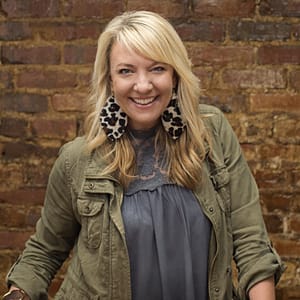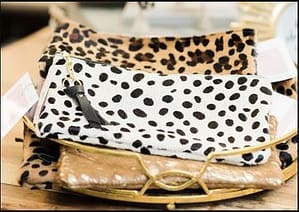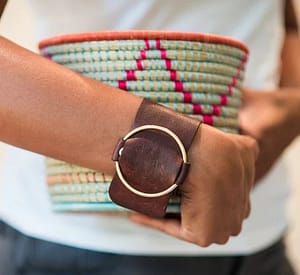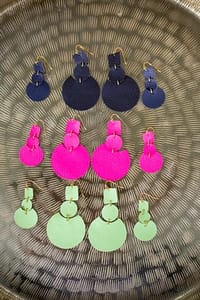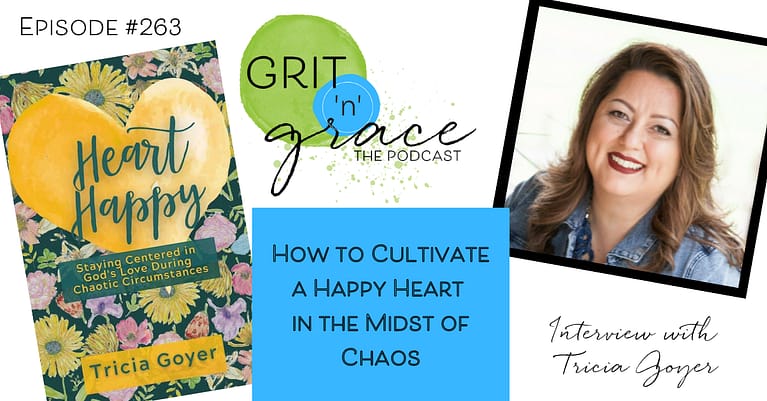Cary Heise, this week’s “Seed-Sender” guest, has always been a people-gatherer. Now she uses this gift to draw people around a table for great good. Instead of down-playing your gifting, what if you identify and start to leverage it? If you’ve been unsure of how to step up into your calling, this episode will spur you on and inspire you!
(This page contains affiliate links. Your clicks and purchases help support Grit 'n' Grace at no extra charge to you.)
Recommended Resources
- Designed for Joy website — http://www.designedforjoy.com
- Amy & Cheri’s newly released book — Exhale: Lose Who You’re NOT. Love Who You ARE. Live Your ONE Life Well.
Downloads
Your Turn
- What is one trait you’ve always been known for?
- How could you put this trait to work to help others?
- Who will you gather around your table this week?
Today’s Guest
Cary Heise is a wife and mom to two teens. Cary is a gatherer of people and has founded several businesses and one nonprofit around community and helping women. Her passion is encouraging women to do their next best thing whether it’s a professional step or growth in their faith. Her most recent project is Designed For Joy.
Designed For Joy is a transitional work experience for women coming from trafficking, homelessness, time in prison, overcoming addiction or other vulnerable situations. We provide living wage work hours while building confidence and refreshing resumes. We are launching equipped women into the marketplace.
You can follow Designed for Joy on Facebook and Instagram.
Transcript — scroll to read here (or download above)
****
Grit ‘n’ Grace: Good Girls Breaking Bad Rules
Episode #165: Gathering People for Good at Your Table
Cheri: Hey, this is Cheri Gregory –
Amy: – and I’m Amy Carroll –
Cheri: – and you’re listening to Grit’n’Grace: Good Girls Breaking Bad Rules. The podcast that equips you to lose who you’re not, love who you are, and live your one life well.
Amy: Today we’re talking to Cary Heise. Cary is a wife and mom to two teens, she’s a gatherer of people, a serial entrepreneur, and the founder of a nonprofit. Her passion is encouraging women to do their next-best-thing, whether it’s a professional step or growth in their faith.
Design for Joy, Cary’s non-profit, is a transitional work experience for women coming from trafficking, homelessness, time in prison, overcoming addiction, or other vulnerable situations. They provide living-wage work while building confidence, refreshing resumes, and launching equipped women into the marketplace.
Amy: Cary, we are so excited to have you here today, and I have to tell our listeners that you are one of my local everyday real-life friends. Welcome to Grit ‘n’ Grace!
Cary: Thank you! Thank you for having me!
Amy: Oh, so excited. So I’ve gotten to have a front-row seat to all that God has been doing in your life here recently, but tell us about it. What’s up with you?
Cary: Currently, I am leading a nonprofit here in Raleigh. We are a transitional work experience for women who are coming from trafficking, homelessness, prison, and other vulnerable situations, and we are giving them living-wage work. We have a studio in downtown Raleigh, and that’s really where we do our ministry. What you’ll find in our retail space is mostly made right there at those work tables, and we’re hitting our two-year mark, and we’re about to announce some exciting news that we’re getting some larger space so we can do even more work.
Amy: I just love to be in your current space, and I can’t wait for it to be bigger! So tell us, how did you get involved in this?
Cary: In my professional life, I’m a serial entrepreneur.
I’ve started and sold many small businesses. While I was building those businesses, I was also doing international mission work, so I’ve been leading teams of women through Central America and some in Africa. We’ve been financially and prayerfully supporting artisan groups around the world. And for the longest time, I was asking God, like, “What is it that you want me to do with this experience? Do you want me to start a website, and like, put their product on a website? Because I could do that.” And then it was in Rwanda, two years ago now, we were with an artisan group, this woman who was taking thirty women who were in the sex industry off the streets and giving them a dignified living-wage job, and they had been working together for two years, creating quality products. I came home and grabbed a couple of my friends and said, “We could totally do this right here.” And in two months, we had employees.
Amy: Cary is a mover and a shaker, and her non-profit is called Design For Joy. And oh, I was in there just a couple weeks ago and Cary, I don’t have a budget big enough to buy the products in your store.
Cary and Cheri: [Laughter]
Amy: It’s jewelry and bags and clothing, and it’s just beautiful work! And so it is a dignified living for these women.
Cheri: Cary, I’d love to have you define a couple of words, because they’re just rolling off your tongue – and for those of who are kind of new to this world, I’d love for you to unpack ‘dignified’ and then ‘living wage’, so that we have a picture of what that means and why that’s so important.
Cary: And I’ll throw another one in there: fair trade. So, you hear that term a lot when you’re shopping. And you know to look for products that are ethically sourced, right? These are words that we hear now when we’re talking about our purchases. Fair trade is when you buy something internationally and they ensure that that artisan and that group in that other country is paid a fair wage. So we’re not fair trade ‘cause we’re in the U.S., and we have a minimum wage here. But there’s also a living wage. So our minimum wage – what is it? Seven dollars and 35 cents? The living wage for Raleigh pays their city employees $13.76 an hour, so that’s what we pay our artisans.
When you pay a woman a living wage job, she can afford an apartment, she can afford diapers, she can afford food for her children. Having two full-time jobs at minimum wage – that is not dignified. There is no life there for her to be a community participant, a mother, a wife, a teacher, and contribute to her workplace. So that’s what I would consider dignified. Giving someone a living wage so they don’t have to work 40-50 hours a week to provide for their families.
Amy: And Cary is not only a people magnet – I mean people are so drawn to her, I’ve watched it over and over again – but she brings Jesus into every situation. Tell us, Cary, how you bring Jesus into your workshop.
Cary: Oh gosh, you’re gonna make me cry, Amy!
Amy: [Laughs] Cary always cries when she talks about Jesus and it’s the thing I love about her most.
Cary: Jesus invites people to tables all of the time. One author pointed out that most of the time those tables weren’t even His. And I just love that! And we have been inviting women to worktables for two years now that are really not even ours, they’re God’s, right? And we are ministering to women, not just the women that we serve, but we are being hospitable and we are showing the love of Jesus to our volunteers, to people, men, and women who come into our studio to shop, to our board members, we are ministering to all of us.
Cheri: What seeds – and we define those as gifts and callings, personality, parts of your story – so what seeds do you see that God has given you to create this kind of an impact?
Cary: It is a little embarrassing when someone – like Amy just called me a people magnet – but I’ve also learned that women just really need to own their gifts and get to work already. So for me, I am a people gatherer. And I don’t know what author it was that I read, but she gave me that term. For the longest time, I really didn’t think I had a gift. I wasn’t a teacher, I wasn’t a preacher, I wasn’t a writer. And I read this blog about how this woman was a people gatherer. And she gave me so much, like, freedom, and, like, pride. I’m like, “That is what I am! I can bring people to a table.” So, while I can’t do all of the gifts of teaching and preaching, I certainly know people who can, and I can connect those. So I can bring the energy, I can bring women with different skill sets, and create a functioning work atmosphere whether it’s in ministry or business.
Amy: Amazing. So how did you know that Design for Joy was a need with your name on it, Cary?
Cary: When ideas start to spin in my mind, this is my checklist of things. I think: Is this God-honoring? Does this align with what God really wants for me and for us? And then I think: Does Rob (my husband) support this? Because I’ve learned in sixteen years of marriage that he’s actually really, really smart in that logical man-brained stuff is really important, and he sees things differently than I do, and he can see a couple of steps ahead, where sometimes I can’t. And then I think: Does it fit my skillset? And if it makes me uncomfortable I know I’m supposed to do it.
Amy and Cheri: [Laughter]
Amy: I love that! That’s so counterintuitive.
Cheri: And I’m sitting here wondering if we can edit that one out. I liked the first three. I’m not so fond of the fourth one.
Amy and Cheri: [Laughter]
Cheri: Kidding!
Amy: [Laughing] It has to be God-sized, not just Cary-sized. That’s awesome.
Cary: I think it’s important to share that I don’t know that I’ve ever really felt like I belong. And so, what’s interesting about me is that I create communities because that’s something that must be lacking in me. And so I create communities that are comfortable for me, so they must be comfortable for someone else, because people come, right?
Cheri: So it sounds like this is a way that God is using a lack – or something that almost could be perceived as a weakness – but God’s flipped it. I mean, it sounds like – Amy, your chapter on how God flips our flops.
Amy: Yeah, or you know, how He takes our hard part of our stories and uses those things. And it’s so amazing to me, I’ve heard Cary say that twice now in two weeks and it just floored me the first time I heard her say it a couple weeks ago, because honestly, Cary is the cool girl. So nobody else around her – or I would say nobody else around her would perceive her as a girl who doesn’t belong, and yet she has used that inner struggle in such beautiful way to create places of belonging for the people around her. And I just think it’s such a beautiful picture of what we painted in the love who you are, even with your hard stories, your quirks, your weirdness, you know, combined with those entrepreneurial gifts that she has, she’s brought all of it to this project.
Cary: I want people to look at me and know the messy parts too. To be able to think “If Cary Heise can do that, I surely can do that.” And I don’t mean that in a self-deprecating way, I really mean it to inspire people. And I think my tagline is I really attract women who flirt with their faith. So they see me doing this crazy stuff, right, and they think, “What is that?” I know that that’s what attracts them to me. I had a woman last week, a friend, and I invited her to our ministry and I said, “Well, where are you with your faith?” and she said, “I’m on the spectrum.”
Amy and Cheri: [Laughter]
Cary: And so another opportunity came up, and I reached out to her and invited her again, and said, “You know what, this is great for a girl on the spectrum.” And she didn’t come, but that’s ok, because now she’s paying attention, right?
Amy and Cheri: Yeah.
Cary: And I’m inviting her. And when the time is right, either she’ll join me – but maybe she’ll join another ministry, or maybe she’ll join another Bible study. Those are my seeds, Amy and Cheri.
Amy: I love it. So tell us one – something that’s happened in the last month that was a ‘seize the yay’ moment. A really joy-filled God moment.
Cary: Again. I reflected on this before we hopped on. The last two months have been a lot of hurry up and wait.
Cheri: Mmm.
Cary: Waiting for our new space: for the lease to be signed, for approvals from the architect. And there have been lots of ‘get really excited, jump up and down, and I-can’t-believe-this-is-happening,’ and then it’s ‘sit and wait for another week before we get that document in our hands’. And isn’t that the way God works? Like, it’s not always like super joyful and all of your prayers are answered in one day, and it’s so beautiful. It’s – waiting for that money to come in. It’s waiting for that document to come in. It’s waiting for your partner to get back from summer vacation so you both can be in this meeting together and make some decisions. And I am learning, at 45 years old, that that is ok. My joy moment can last over a couple of months and I can be patient in it.
Cheri: We hope you’ve enjoyed episode 165 of Grit’n’Grace: Good Girls Breaking Bad Rules.
Amy: Head on over to gritngracegirls.com/epiosde165. There you’ll find our transcript, the Digging Deeper download, and a link to the Design for Joy website.
Cheri: On August 28th, we’ll be hosting a Facebook virtual party to launch our Exhale small group curriculum materials.
Amy: We would love for you to join us for encouragement, games, and prizes. Search for GritNGraceGirls to like our Facebook page. That’s where the party will be happening!
Cheri: And if you head to exhalebook.com/study, and share your email, you’ll be entered to win a fabulous prize pack which includes a leader’s guide, a study guide, and ten copies of Exhale.
Amy: Next week’s seed-sender is Kim Tschirret of Hope Reigns who has used her seeds to create change for children in my community.
Cheri: For today, grow your grit. Embrace God’s grace. And when you run across a bad rule, you know what to do. Go right on ahead and break it!
Amy ‘n’ Cheri: Break it!
Take-Away for Today:
“Women just really need to own their gifts and get to work already.”
~Cary Heise
You’ll never miss an episode when you sign up for weekly updates!



